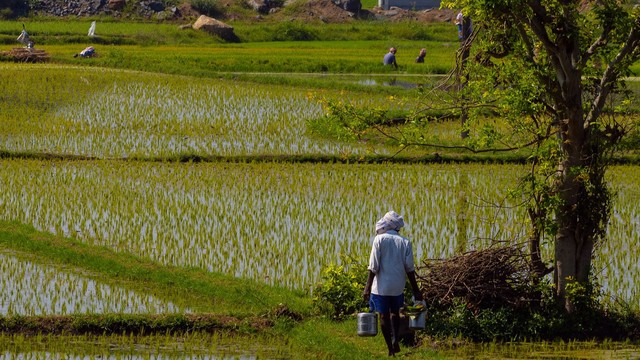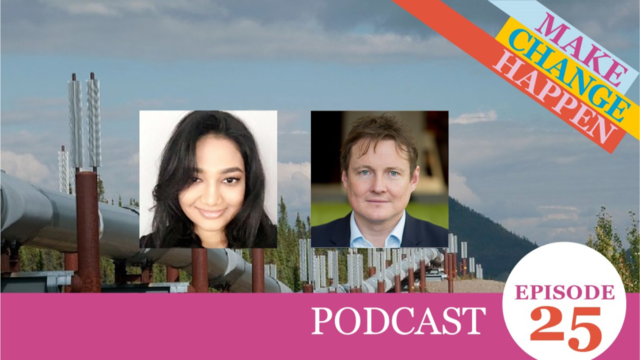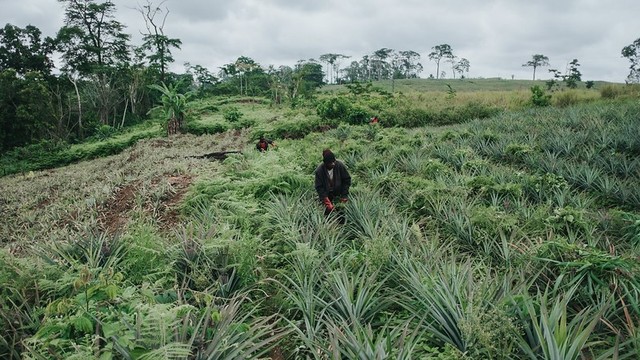Loss and damage – recognising the costs of climate change full transcript
Host [00:00:01] : You are listening to Make Change Happen, the podcast from IIED, the International Institute for Environment and Development. In this episode, host Liz Carlile and guests from the Solomon Islands, Bangladesh and the UK unpick the meaning of the term 'loss and damage' and discuss its relevance and importance to the least developed countries, and how it might be addressed in the forthcoming COP26 climate negotiations.
Liz Carlile [00:00:28 ]: Welcome to our latest episode of Make Change Happen. I’m Liz Carlile, I’m director of communications at IIED and I’m your host. Loss and damage – for those working in the climate change community, loss and damage is a hotly contested issue. For many, though, it’s a phrase that attracts attention but do we really know what it means in practice? Today we’re going to unpick this a bit. We’re going to look at some of the difficulties and some of the controversies surrounding this term. With my three guests, Gladys Habu, Saleemul Huq and Brianna Craft, we’re going to explore why 2021 may be the time for countries to take real action on loss and damage. But firstly, can I get you to introduce yourselves? Gladys?
Gladys Habu [00:01:17]: Hi. My name is Gladys Habu, I am a climate activist representing small island developing states. Pleased to be on this podcast series talking about loss and damage and then look forward to what everyone will be discussing today. Thank you.
Liz Carlile [00:01:36]: And it’s really great to have you with us. Thanks for joining us. What about you, Saleem, can you tell us a little bit about yourself?
Saleemul Huq [00:01:43]: Sure. Thank you very much, Liz. My name is Saleemul Huq, I’m the director of the International Centre for Climate Change and Development at the Independent University, Bangladesh, in Dhaka, where I’m based. My centre does a lot of research on loss and damage and I also advise the Least Developed Countries Group on loss and damage in the UN Framework Convention on Climate Change negotiations.
Liz Carlile [00:02:12]: And Saleem, I’ve worked with you for many years and I know that climate change has been your big thing. Am I allowed to ask you how many COPs have you been to? We’re at COP26 now, aren’t we? Have you been to them all?
Saleemul Huq [00:02:26]: Indeed I have, all 25 of the COPs that have happened so far.
Liz Carlile [00:02:31]: [Laughing]
Saleemul Huq [00:02:31]: And I hope I can get to COP number 26 as well in Glasgow.
Liz Carlile [00:02:36]: That’s amazing. That’s a serious record.
Saleemul Huq [00:02:38 ]: And maybe I’ll retire after that.
Liz Carlile [00:02:40]: [Laughing] You may not be allowed to, Saleem, we’ll have to see what happens.
Saleemul Huq [00:02:45]: I was going to retire after 25 but then with Glasgow and 26 being so important, I decided I’ll do one more [laughing].
Liz Carlile [00:02:53]: And we need you there. So, Brianna, I know climate change is a huge issue for you as well. Can you tell us a little bit about what you’ve been doing?
Brianna Craft [00:03:02]: Yeah. Hi everyone, my name is Brianna Craft. I’m a senior researcher in IIED’s Climate Change group. I follow the UN climate change negotiations and work to support the Least Developed Countries Group in that space, like Saleem said. Though I haven’t been to as many COPs as Saleem has [laughs]. I started in the COPs in 2011, so almost 10 years’ worth for me.
Liz Carlile [00:03:29]: So between us all, we have a lot of experience and understanding of these issues and the COP and I’m really delighted to have you all with us today. So perhaps, Brianna, you could tell us a little bit about what is meant by loss and damage?
Brianna Craft [00:03:48]: Yes, thanks Liz. So, when I say the impacts of climate change, for most people this conjures up some pretty specific references. So probably the aftermath of a big natural disaster, like flooding after a storm, or maybe areas that have been burned by a wildfire. Climate change, as we know, feels bigger and more frequent natural disasters and their impacts are what most people think of. And for many climate impacts, there are things that people can do to adapt to them. So, for the example of flooding, you can move houses to higher ground to help cope with flooding, you can put in place early warning systems so that people can evacuate. In the case of wildfires, you can use forest management to help decrease the likelihood of a fire, you can set up no burn zones, etc. But what about climate impacts that go beyond our ability to cope?
So, what about elements of the climate crisis that humans and natural systems just can’t adapt to? This is the topic of loss and damage and this is what we’re trying to illustrate. Perhaps the easiest example to picture, for the case of loss and damage, is something like sea level rise, right? Humans can adapt to modest changes in the sea level, we can restore mangroves and build sea walls. But in some cases, we can’t adapt. So what do we do when the ocean covers whole islands, whole communities, whole countries? Life under the surface of the water isn’t something we can adapt to.
I think the best kind of illustration was in 2009, the prime minister of the Maldives famously held a cabinet meeting with his ministers sitting around a table in scuba gear. He was trying to make the point that yes, we should bring down emissions to slow climate change. Yes, we should adapt where we can. But for many people, particularly in vulnerable developing countries, there are some elements of the climate crisis which we can’t recover from. And this is what loss and damage is.
Liz Carlile [00:05:47]: Brianna, this sounds like it’s a really complex issue. It doesn’t sound like there’s an easy definition of what this might be for countries or people to work out where they sit on this line. Is that right? And why is that, if that’s so?
Brianna Craft [00:06:02]: Yeah. So, I work in the UN climate negotiations, as I said. And certainly in political spaces there is no shared agreement on what a definition of loss and damage is. As a researcher, I know that loss and damage is broad, as you said, and brings into place several different concepts. So, let’s break down a bit.
Because loss and damage has to do with the impacts of climate change, start there. Impacts can be both from slow onset events, like sea level rise, ocean acidification, glacial retreats, maybe deforestation, things that take a while. Or they can be from extreme events, like big storms, cyclones, droughts, etc. These climate impacts then cause harms, harms that can be repaired at a cost and harms that are irreparable. Harms that can be repaired at a cost, these are often the ones that get the attention. So after a big storm the damage, like destroyed infrastructure or buildings will often be given as an economic loss.
So I’m an American and what springs to mind for me is Hurricane Katrina, our biggest natural disaster in recent history, caused a US$160 billion in damage, and this is widely reported, even in the United States. What doesn’t typically get as much attention are irreparable non-economic harms. So these are also the impacts of climate change, but we tend not to grapple with these topics.
The one that’s probably easiest to think about and the most tragic is the loss of human life. We know that people in the least developed countries are five times more likely to die due to climate-related disasters than those living anywhere else in the world. The loss of human life is terrible, irreparable loss caused by climate change. And there are others, like the loss of human health, the loss of territory, the loss of biodiversity, loss of culture. These are losses that are less understood, they get less attention. We certainly don’t put economic figures next to them because how do we really fathom the depth of what has been done?
So loss and damage covers all of these components and it’s complicated and it’s complex and for most political leaders, particularly in high emitting countries, they don’t want to touch such authority and deep and personal issue. What we wanted to do was create a space for people living in the least developed countries to talk about their own experiences with loss and damage caused by climate change.
Liz Carlile [00:08:43]: Thank you, Brianna. That’s a sobering description but a really clear one, thank you very much for that. And Gladys, I know that you’ve been one of the people who’s been sharing their personal experiences of loss and damage from the Solomon Islands. It would be great to hear from you about that.
Gladys Habu [00:09:02]: Thank you very much. No definitely, I really want to acknowledge IIED for providing this space in which we could share our personal experiences. So, listening to what Brianna said just then from a researcher’s perspective, from the ground perspective – on the ground experience, rising temperatures, you know, unpredictable weather patterns. We’re seeing our coral reefs, they’re dying, our mangrove ecosystems are dying. It’s affecting marine life. We’re seeing loss of fertile land for gardening and you know, this could happen by flash flooding or landslides or, you know, frequent, intensifying cyclones, or even longer period of droughts.
So a good example we’ve seen recently, we’ve had about three different cyclones within the South Pacific region happen just a few days ago which has affected so many countries, including Fiji, Vanuatu and myself here in Solomon Islands. And you can see like these impacts, it’s affecting our food security, it’s affecting our nutrition status, it’s affecting our farmers especially, since the majority of our people are relying on subsistence farming for a living. And then there’s sea level rise that comes into play as well. So we’re getting increased, you know, frequency of relocating for some people. Other people seeing their fresh water being poisoned.
There are people that can’t even relocate because of the fear that they might exacerbate tensions within communities. So certain places like the Lord Howe Islands, the Sikaiana Islands here in Solomon Islands, they’re just unable to really move from their place, so they just keep building say maybe on higher stilts, so further inland. But the land space is getting limited year after year. And a great example for myself personally would be Kale island as I watched it over less than a decade as it just shrank and shrank until it is now completely non-existent. And I feel that is a signal that the rest of the world should be looking at and picturing what the future of our planet would be like.
And on top of this, the most vulnerable people here are our children, our young people, our pregnant women, the elderly. And the sad thing is, countries like us in the small island developing states, we aren’t contributing much to this, accelerating this global warming, this climate crisis that everyone is going through at the moment, and yet we are the ones receiving it, heavy on our side. And these losses, they’re not just the loss of land or biodiversity, they’re loss of our history and our culture. And it is something that is irreplaceable, we can’t ever go back and change it like Brianna was saying. So it is quite a significant impact on our livelihood.
Liz Carlile [00:12:15]: No, I think we can hear these are harsh and devastating losses, and realities, daily realities, are on the front line. Saleem, I know you’ve been working to raise awareness on loss and damage for decades, and you’ve been very vocal on the matter of who’s responsible. This is a good moment, I think, to hear from you after hearing what is a desperate reality for Gladys.
Saleemul Huq [00:12:43]: Sure, thank you. So let me just build on and add to what Brianna mentioned in terms of the difficulty of even agreeing on what we are talking about, let alone addressing it effectively at the global level in the UN Framework Convention on Climate Change. And even the terms ‘loss’ and ‘damage’ are actually euphemisms for words that we aren’t allowed to use, namely liability and compensation. Because we are talking about not human, not natural events any more, but human induced climate change.
The cyclones and wildfires are natural events but they’re getting worse because of climate change, and that is because of the emissions of greenhouse gases into the atmosphere and the raising of global temperature now by well over one degree centigrade compared to pre-industrial. So, the situation now in my view is that the year 2020 is effectively the year in which we have transitioned so and in future will be remembered not just for COVID-19, obviously that will be one major element of remembering the year 2020, but also the year in which we have transitioned into a climate changed world. And from super wildfires, to floods, to cyclones, all over the world, we are seeing all of them being intensified.
2020 was the warmest year in recorded history, but in future it will be remembered as the coolest year going forward. Every year is now likely to be even warmer. And that is because of human-induced climate change. So we are now stepping into a world which is now being affected, quite clearly the effect of human induced climate change is now quite credibly and scientifically demonstrable and even calculatable. And therefore, this issue now needs to be addressed.
On the ground, in countries that are being affected, whether they be rich countries like the US or poor countries like Bangladesh, the governments and people of the countries have to deal with it, whether they like it or not. No matter who caused it, they are the ones who are suffering the impacts and they have to deal with it. So a lot of my work in my centre and with my colleagues in the other least developed countries, so we have our universities network called LUCCC – LDC Universities Consortium on Climate Change – we do a lot of work at the national level in trying to determine the impacts of climate change and how to help people adapt. So adaptation is the first response to prevent and minimise damage. But now the damage is happening, we also have to deal with the loss and damage that is happening and has to be dealt with.
And let me end by just sharing an example from my country, Bangladesh, which has historically been hit by cyclones that come up through the Bay of Bengal and hit Bangladesh, India and Myanmar, our neighbours on the west and east. And this is a natural phenomenon, so cyclones are natural. But having very high category six super-cyclones happens only once every ten years or so, and over the last decades these super-cyclones have killed in the order of hundreds of thousands of people. They’re extremely devasting. We had one of them last year.
In May of 2020 there was a cyclone called Cyclone Amphan which became a super-cyclone because the sea surface temperature in the Bay of Bengal was around two degrees centigrade higher than normal, and that is really what fuels the energy in the cyclone, and it became a super-cyclone. Fortunately for Bangladesh, it hit India first, West Bengal caused a lot of devastation and hit Bangladesh. And both India and Bangladesh have very, very good cyclone warning systems and we were able to evacuate more than three million people who took shelter and survived. The death toll was in the few dozens only, compared to tens of thousands in the past. But nevertheless, it still caused a lot of damage.
Many people in Bangladesh still haven’t been able to go back to their homes because their homes have been destroyed or the land has been salinised by the seawater. So, although we’ve been able to reduce lives lost, we are not yet being able to deal with livelihoods that are being lost. So loss and damage is still happening, although the good news is human life lost has been reduced considerably.
Liz Carlile [00:17:35] : So is this about money? What kind of compensation do we need? What are we asking for, or what are you asking for? Or what should we be asking for?
Saleemul Huq [00:17:46]: Absolutely about money in the negotiations. In fact last COP, the 25th COP, which was held in 2019 in Madrid in Spain, the vulnerable developing countries, including the least developed countries, the African countries, the small island developing states and the Latin American countries, there are four groups of vulnerable countries, came together and they demanded that the issue of compensation, or at least even if we don’t call it compensation, funding to affect, to give to the people who are affected by loss and damage, should be on the agenda and should be discussed.
Unfortunately, COP25 was one of the COPs that ran over time by well over two and a half days, ended without a resolution on this topic. So this is not resolved, we didn’t get any funding. And so this is an issue that we will be raising again in COP26 and hopefully this time we should get some response. Otherwise, in our view, COP26 will be a failure.
Liz Carlile [00:18:51]: Brianna, does this resonate with you?
Brianna Craft [00:18:53]: Yes, exactly as Saleem was saying. The Least Developed Countries Group has been one of the champions of getting the issue of loss and damage on the international agenda, the UN climate change negotiations for many years, together with the island states and other vulnerable developing countries, and this certainly will be a priority for them going into COP26, especially now that COVID has delayed the negotiation process as we all know, delayed many aspects of life.
But essentially we’ve had a year where the negotiations have been a bit on pause, unable to take decisions because they’ve been unable to bring people together in person. So the least developed countries and other vulnerable countries are really going to be coming to Glasgow at the end of this year, hopefully in person, with very strong demands on what needs to be done now that we’ve seen even warmer temperatures, another year of the hottest temperatures on record, another year of these big storms, another year of loss and damage for people on the ground like Gladys. COP26 needs to deliver on the vulnerable countries’ demands for loss and damage, finance and other elements of support going forward.
Liz Carlile [00:20:03]: And what about things like technical support? How does that feature? Are there examples?
Brianna Craft [00:20:10]: There are certainly examples. I follow technology development and transfer in the UN climate change negotiations. There have, when we talk about support in the UN climate negotiations, we’re not just talking about finance, we’re talking about environmentally sound technologies, we’re talking about learning that builds capacities and capabilities and other support. So it certainly is more than finance. However, finance is the means of building a lot of the support that’s needed and coordinating it. So countries do really see it as the practical, tangible means of moving the discussion forwards and it’s first on the agenda.
Liz Carlile [00:20:52]: And presumably finance gives countries the ability to make their own decisions more easily. I imagine that that’s something that people think about often. So Gladys, we need urgent action. We’ve heard from your really clear example of what’s happening every day that action is so important for you. What was the one thing you’d be particularly wanting to see?
Gladys Habu [00:21:20]: First of all, I really want to say, thank you for very much to Saleem for sharing what Bangladesh has been doing. I think that’s a really excellent example of where least developed countries are pushing and pushing for. There are other good examples around the Pacific region, including Fiji for instance, who are very much organised compared to us in terms of their climate action strategies. They are able to have more presentation in a lot of regional and international events, which is really important for the Pacific region as a whole. And Vanuatu also have taken the lead in doing the plastic ban which is incredible, and definitely the way forward for every other Pacific island country.
But coming back to the Solomon Islands, I think or I know that there is still the need for many other people to understand this concept of loss and damage and what it actually means. I really want people to be recognising this more and speaking about it more, as I feel that this would be the biggest push factor for our government to really push for, or like prioritise more the climate action. Our strategies that we have got in place, like for example in 2017, Solomon Island state came up with the report talking about climate change and disaster risk and finance assessment, which is there so it shows that people are discussing this, you know, at policy or government level.
But at the same time, I still see that there is a need to strengthen the systems that are in place so that we are able to access these funds for adaptation. I think a lot of the funds that come in the name of countries like us still don’t really get to the vulnerable people in the community. So, I think that’s what’s really important going forward for Solomon Islands. And then, you know, most originally I would like to see more work being done in terms of communicating more about loss and damage and taking it really seriously and carrying it forward to events like COP26, and I really hope that this year we would have more representation and therefore be able to better negotiate practical solutions that could reach the people that are directly impacted by climate change.
And I guess on that note I’d like to say it’s really important that personal stories on loss and damage are shared because this will really help with the scientific information that is out there helping people to make these decisions for climate action. And it’s really encouraging for us here in the Pacific that the American president, Joe Biden, has gotten back into the Paris Agreement as I feel this will really have an impact on the Australian government and I really hope that the US and the Australia government work together to have the Australian government set more ambitious targets for their climate action and that would influence us in the Pacific. Because you know, even with America at that level taking these initiatives, it sort of has a bigger influence globally, but if we want to really narrow it down we need Australia or someone close to us to really put their foot down and lead us. I think that would have a great impact on our government as well.
Liz Carlile [00:24:55]: Thank you, Gladys. Saleem or Brianna, I wonder, it would be great to hear from you about your thoughts on what President Biden will bring to the scene. I think Gladys’ point about how influence works and the sort of role that the US could play could make a difference, what are your thoughts?
Brianna Craft [00:25:17]: Well, I’ll jump in as an American [laughs]. Well, first off I must say I continue to be ecstatic to see such an ambitious climate agenda come from the Biden administration. It’s certainly the most comprehensive climate plan I’ve seen from any administration. And to hear things like US Special Climate Envoy, John Kerry, at the recent adaptation summit say that there is simply no adapting to a three-degree world, except for the very richest and most privileged and that the US is going to make up for lost time, is so welcome.
However, [laughs] leaving my enthusiasm to one side, at this point the US’s plans remain just plans. They do need to implement them and we look forward to the US convening an Earth Day summit in the next few months, where they announce their updated pledge to the Paris Agreement to bring their own emissions down and to help countries adapt. They need to meet their financial commitments that have gone unmet since the Obama administration.
There’s a lot, there’s a long way for America to go. And even should they fully implement Biden’s plans, it’s still not enough to account for the world’s biggest emitter’s fair share of the global effort. So, yeah, America has a ways to go, though their presence is certainly welcome, particularly as an American. And I think what’s most important is that we, America, not only inspire others to bring down emissions but also work within its own country to ensure that even if we have another change of administration, they remain a committed partner on climate change. So I guess I’ll say that on America’s behalf.
Liz Carlile [00:27:03]: That’s great, but it’s such a different picture, as you say, isn’t it?
Brianna Craft [00:27:06]: Oh yes.
Liz Carlile [00:27:06]: From just two or three months ago, we are looking at something so different. Saleem, I wondered if I could pick up on a point that Gladys said around getting finance to… for adaptation directly where it needs to be. Have you got any thoughts on that?
Saleemul Huq [00:27:23] : Sure. So let me just share a little bit about the work that I’ve been involved in for many, many years, starting from when I was still at IIED and now continuing in my new centre in Bangladesh, which has been working with the most vulnerable communities in the most vulnerable countries. So the least developed countries are amongst the poorest and vulnerable countries and we’ve been working in those countries on promoting supporting the vulnerable communities to adapt to the impacts of climate change.
Now, unfortunately, also having to deal with loss and damage and the COVID pandemic as well, the same communities happen to be vulnerable to everything. And so helping them, to me, is by far the most important thing that a national government can do, these are their own governments, as well as the global community can do, in supporting what we are calling locally led adaptation, enabling them not just looking at them as targets or beneficiaries of largesse from the global community or from national governments, but enabling them to actually take measures themselves, supporting them to be actors and agents of change themselves.
And learning from them, because they have a lot of experience and knowledge on how to adapt to the impacts of climatic events, generally. Climate change is new but climatic events are not. And so we can indeed use their knowledge in enhancing adaptation going forward, and we would also have to do it on the issue of loss and damage as well.
If I can just add a little bit to what Brianna mentioned in terms of the US coming back into the Paris Agreement, which is indeed extremely good news. But to point out that they are coming back four years after Trump has actually caused a huge amount of backward pull of tackling climate change. And so the US is not coming back into a good situation, it’s coming back into a bad situation and for it to take up its claim that it wants to become a leader again, it’s not going to be automatically acclaimed as a leader unless they are actually willing to lead.
And to me one of the topics on which we will judge them is the topic of loss and damage. Because in Paris, at the Conference of Parties in Paris where the Paris Agreement was agreed in 2015, in fact, John Kerry was then the secretary of state of the Obama administration and he agreed the Paris Agreement, and he’s the one who put into the Paris Agreement the COP21 decision, the fact or the wording, that loss and damage would not be used for liability and compensation. At that time, we swallowed it and agreed to it. We are not going to swallow and agree to it in COP26 and they are going to have to do something about it. So, the ball is in their court to recognise reality, for them to be able to be accepted as having a role to play in the negotiations going forward.
Liz Carlile [00:30:29]: Thanks very much, Saleem. I think that was a great point to make.
Liz Carlile [00:30:39]: We’re coming to the end of our talk now. It’s amazing how quickly time goes, and as we can see, this is a really deep, complex issue and we can see the difficulty that it will lead to in trying to solve over these next few and many years. We love to finish this programme with a kind of, a change that you want to see happen, so on loss and damage, just very, very briefly I’m going to ask each of you to say what is the next change you would like to see? What will be the change that leads us to a significant difference? Saleem, let me start with you.
Saleemul Huq [00:31:20]: Sure. So, to me the biggest change is to accept reality on the ground and to do what we can in every country in the world, including the rich countries, who are now also suffering loss and damage from climate change, to see whether we can help each other to deal with this problem. On the one hand, share knowledge and experience, on the other hand for the poorer countries, provide the kind of funding support that they need.
Liz Carlile [00:31:42]: Thank you. Gladys, what about you?
Gladys Habu [00:31:46]: Personally, I’d also like to agree with Saleem. I think the most important thing here is to get people around the world to realise and recognise the reality that we are going through because of this climate crisis, and recognising that loss and damage is a significant issue that everybody needs to focus on. And as much as we are going towards more realistic climate action, I think it’s very important that we also are able to have stronger systems in place within our own national governments as well, so we can access funding and resources available to help people adapt to the loss and damage.
Liz Carlile [00:32:31]: Thank you, Gladys. And last but my no means least, Brianna, what do you think for your biggest change you want to see happen right now?
Brianna Craft [00:32:40]: Thanks, and yeah, to first agree with Saleem and Gladys, the biggest changes I want to see are really that across levels from individual people right on up to the UN climate negotiations, that we are recognising that climate impacts are unfairly shared around the world and that people in poorest countries, the most vulnerable amongst us, are really suffering loss and damage and other irreplaceable impacts of the climate crisis.
And on the international front, that countries would work together to get support to deal with loss and damage to those who need it the most. So down to the local level where we know that less than 10% of the climate finance that actually goes to support countries actually reaches. And really to listen to the least developed countries and other vulnerable countries, to meet their needs, to achieve the visions they have, is really what we need this year.
Liz Carlile [00:33:37]: Thank you all. It’s clear we have a lot of work to do. This has been a really interesting discussion and I really appreciate your time today. Thank you very much for talking to me about loss and damage. I just wanted to say a final word and to thank Gladys, you’ve been the character in an animation on loss and damage which we are happy to share and I think it’s a really good example of how we can give real life stories in a way that many people can understand them. So thank you very much for your time today.
Gladys Habu [00:34:14]: Thank you very much, it has been an absolute pleasure.
Saleemul Huq [00:34:17]: Thank you.
Brianna Craft [00:34:17]: Thank you very much.
Host [00:34:20]: And you can watch the animation on loss and damage that Liz mentioned on our website at iied.org/loss-damage. You can find out more about this episode and our guests and their work at www.iied.org/podcast, where you can also listen to more episodes.
You can leave us feedback or follow the series at soundcloud.com/theiied.
The podcast is produced by our in-house communications team. For more information about IIED’s work, please visit us online at www.iied.org.
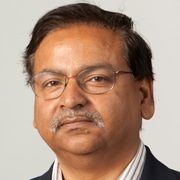

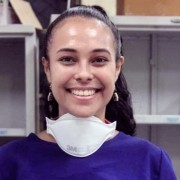

 Soundcloud
Soundcloud Stitcher
Stitcher TuneIn
TuneIn Spotify
Spotify iTunes
iTunes Acast
Acast